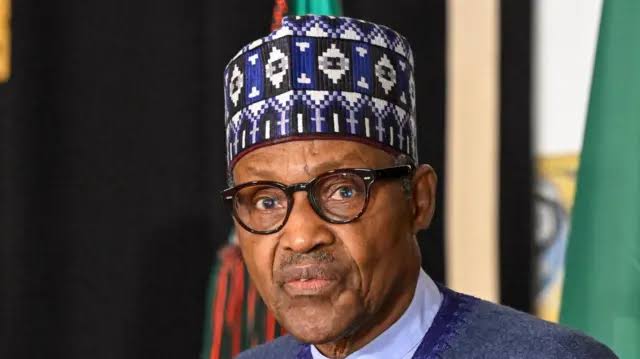Death – Obituary News: Tragic Loss: Former Nigerian President Buhari Dies at 82
Death – Obituary, Cause of death news:
Former Nigerian President Muhammadu Buhari Dies at 82
Former Nigerian President Muhammadu Buhari has passed away at the age of 82 in London, following a prolonged illness, as confirmed by the presidential press office. Buhari, who was a key figure in Nigeria’s political landscape, initially served as a military ruler before being elected president twice in democratic elections. His tenure was marked by his tough stance on corruption and insecurity. Buhari’s death marks the end of an era in Nigerian politics, leaving behind a complex legacy that will be analyzed and debated for years to come. Condolences pour in from around the world as the nation mourns.

Former Nigerian President Muhammadu Buhari has died at the age of 82 in London after a prolonged illness, the presidential press office announced on Sunday.
- YOU MAY ALSO LIKE TO WATCH THIS TRENDING STORY ON YOUTUBE. Waverly Hills Hospital's Horror Story: The Most Haunted Room 502
Buhari, a former military ruler who later served two terms as a democratically elected president, was known for his tough… pic.twitter.com/VIBdTwzyOL
— 91.2 Crooze FM (@912CroozeFM) July 14, 2025
Former Nigerian President Muhammadu Buhari Has Died
The news of former Nigerian President Muhammadu Buhari’s passing has left many in shock. He died at the age of 82 in London after a prolonged illness, as announced by the presidential press office on Sunday. Buhari’s journey from a military ruler to a democratically elected president has been marked by both challenges and achievements. His death marks the end of an era in Nigerian politics.
A Life of Service and Leadership
Buhari’s career in public service began during a tumultuous period in Nigeria’s history. Initially, he took power as a military ruler in 1983, showing a tough stance against corruption and indiscipline. His regime was characterized by a strong military presence and strict governance. However, after being ousted in a coup, he returned to the political scene and was elected president in 2015, serving two consecutive terms until 2023. His transition from military to democratic leadership is a notable facet of his legacy.
Health Struggles and Final Days
Throughout his presidency, Buhari faced various health challenges that often raised concerns about his capability to lead. These health issues persisted, leading to extended medical stays abroad, particularly in London. The announcement of his death has reignited discussions about the state of healthcare in Nigeria and the need for improvements, as many citizens had hoped for his recovery and continued leadership.
Impact on Nigeria’s Political Landscape
During his time in office, Buhari implemented numerous policies aimed at combating corruption and improving Nigeria’s economy. His administration focused on diversifying the economy away from oil dependency, promoting agriculture, and enhancing security against insurgencies. Although his tenure saw significant strides, it also faced criticisms regarding human rights and economic challenges. His tough demeanor and firm governance style made him a polarizing figure among Nigerians.
Reactions to Buhari’s Passing
News of Buhari’s death has drawn reactions from various quarters, both in Nigeria and internationally. Many leaders and citizens have expressed their condolences, reflecting on the complexities of his leadership. Social media platforms buzzed with tributes and reminiscences of his contributions to the nation. Some celebrated his commitment to fighting corruption, while others pointed out the controversies that marked his administration. A tweet from 91.2 Crooze FM captured the sentiments of many, highlighting his journey as a leader who navigated Nigeria through challenging times.
Looking Forward
As Nigeria mourns the loss of Muhammadu Buhari, the question of what lies ahead for the nation is more pressing than ever. His death may open the door for new leadership dynamics and potential reforms in governance. The nation stands at a crossroads, reflecting on Buhari’s legacy while anticipating the future. Discussions about his impact will undoubtedly continue to shape Nigeria’s political narrative for years to come.
In remembering Buhari, it’s essential to engage in conversations about the lessons learned during his time in power. His life serves as a reminder of the complexities of leadership and the ongoing quest for a better Nigeria.

